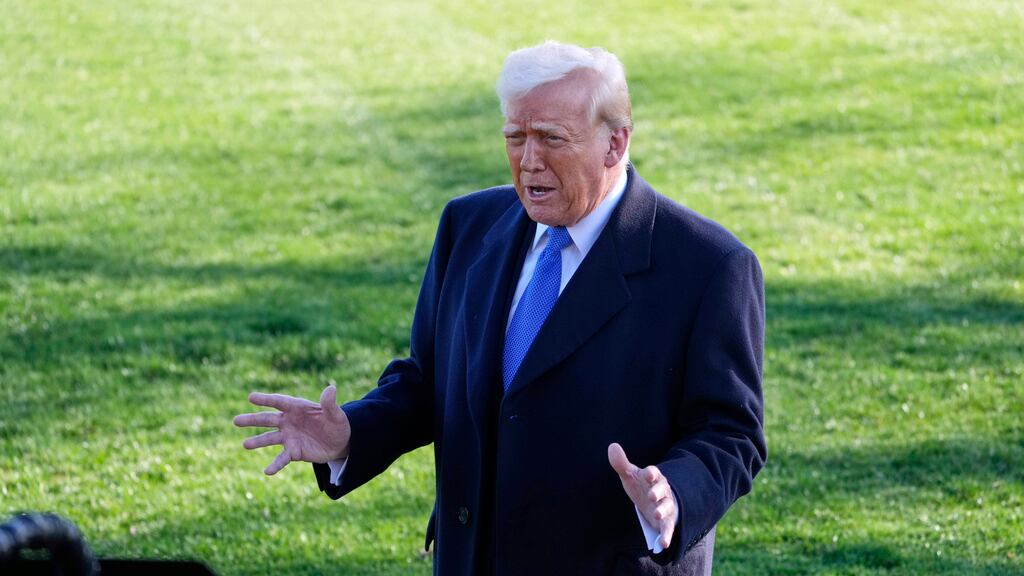WASHINGTON (AP) — President Donald Trump questioned on Monday the impartiality of the federal judge who blocked his plans to deport Venezuelan immigrants to El Salvador, criticizing him just hours before his administration requested an appeals court to lift the judge’s order.
PUBLICIDAD
Just after midnight, Trump posted a message on social media calling for the removal of Chief Judge James Boasberg. Trump shared an article about Boasberg’s attendance at a legal conference that allegedly featured “anti-Trump speakers.”
PUBLICIDAD
What did the judge determine against deportations?
Meanwhile, on Monday the judge refused to annul his original order before an appeal hearing for the case. Boasberg ruled that immigrants facing deportation should have the opportunity to challenge their designations as alleged members of the Tren de Aragua gang. He stated that there is “a strong public interest in preventing the wrongful deportation of individuals based on categories that they are not allowed to challenge.”
“The public also has a significant interest in the Government’s compliance with the law,” wrote the judge.
Boasberg did not immediately decide what form a challenge should take.
Why did the judge question the deportations carried out by the Trump administration?
The Trump administration has transferred hundreds of Venezuelan immigrants to El Salvador under an 18th-century war law that had not been invoked since World War II. The flights were already in the air on March 15 when Boasberg agreed to temporarily ban deportations and ordered the planes to return to the United States with the deportees. That did not happen.
The administration appealed the order. On Monday afternoon, a panel of three judges from the Court of Appeals for the District of Columbia Circuit is set to hear the arguments from the lawyers.
The Foreign Enemies Act allows non-citizens to be deported without the opportunity to appear before an immigration or federal judge. Trump issued a proclamation accusing the Tren de Aragua of “invading” the United States.
Government lawyers argued in a court document that Boasberg’s order was an “unprecedented intrusion into the Executive’s authority to remove dangerous foreigners who pose serious threats to the American people.”
“And even if it were reviewable, the President’s action is legal and is based on a long history of using war powers against organizations connected to foreign states and national security judgments, which are not subject to judicial review,” they wrote.
The civil rights lawyers who filed a lawsuit to stop deportations noted that the “implications of the government’s position are astonishing.”
“If the President can designate any group as foreign enemies under the Law, and that designation is not reviewable, then there is no limit on who can be sent to a Salvadoran prison, nor limit on how long they will remain there,” they wrote.
Trump and some Republican allies have called for the removal of Boasberg, who was nominated by President Barack Obama, a Democrat. In a rare statement, the Chief Justice of the Supreme Court, John Roberts, pointed out that “removal is not an appropriate response to a disagreement over a judicial decision.”
